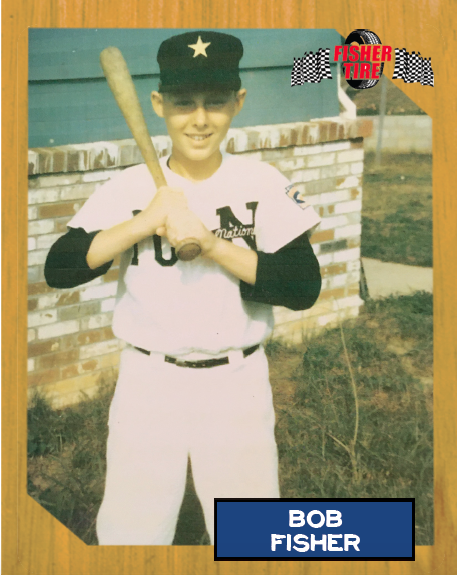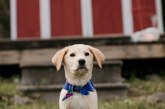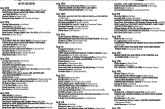Late Fisher Tire patriarch Bob Fisher cemented his legacy through a life of talent and kindness
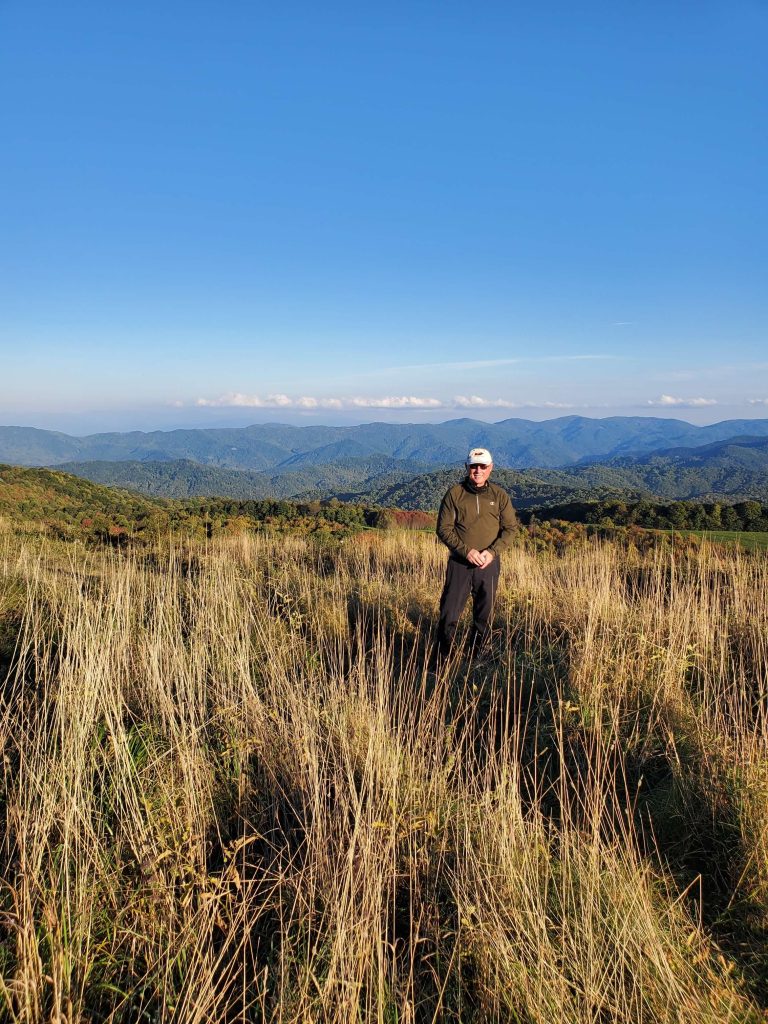
It’s surreal navigating a world without Bob Fisher in it.
His son, Bobby Jr., sees reminders of his father daily around the Fisher Tire Co. shop at 3530 N. Broadway, a Knoxville fixture since 1948, when it was established by Ray Fisher, Bob’s dad and Bobby’s grandfather.
His close friends still take their own cars there, and every time they pull into a bay, they expect Bob to amble out of the office with a grin and a story to tell.
From local golf courses to youth baseball fields, Bob Fisher’s presence will be felt for years to come, so big was his personality and generous was his spirit. And even though it’s been seven months since he lost his battle with cancer, remembering their friend still takes an emotional toll on those who were a part of his inner circle.
“Bob had a lot of close friends, but we were particularly close, and it’s still pretty hard,” says Rick Privette, who met Fisher on a golf trip roughly three decades ago, he estimates. “We shared a lot of great experiences and a lot of stories over time, and the first time I took my car back to the shop, it was pretty hard.”
Privette’s voice breaks, grief from the still-fresh wound of the loss of his friend escaping in audible sobs.
“I’m just an old softie,” he whispers, needing a few moments to regain his composure.
Fisher had that effect on people, especially the friends who were brothers in name if not by blood. David Smith, for example, lived about a quarter of a mile from Fisher as a kid, and the two ran in the same Fountain City circles, eventually becoming pals in grammar school, then Boy Scouts, then on the baseball field, where Bob’s talent was legendary.
“Bob grew up playing baseball at Fountain City Ball Park, and I played at Inskip Ballfield,” Smith says. “But in the seventh grade, coach Bud Bales came to Inskip to teach, and we were all excited to have him as a teacher and also as a coach.”
Bales, who spent five years with the Chicago Cubs, was a graduate of Carson-Newman and something of an East Tennessee legend. Having a real, live MLB player in the dugout was something Smith, Fisher and their peers had only dreamed of, and Bales took a particular shine to Fisher, Smith says.
“I can remember Coach Bales working with Bob in the Inskip gymnasium on his pitching,” Smith recalls. “Bob was a left-hander, and he had a big left-handed curve, and I remember the coach just nodding when Bob would throw a fastball. He helped Bob develop, and being left-handed, Bob was almost unhittable, and they just had that relationship all the way through school.”
“I met Bobby playing baseball, just little boys in the city league that’s younger than Little League,” says singer-songwriter and former poet laureate of Knoxville R.B. Morris. “We played ball together up until we were teenagers. Even as a little kid, Bobby was a formidable pitcher and hitter. We came up playing for the White Sox Little League team, coached by the fireman and jazz drummer Guy Moser. Bobby was our southpaw pitcher, and Jimmy Rector, the great songwriter and son of virtuoso mandolinist Red Rector, was our righthanded hurler. Joe Pritchard, who would later play baseball for UT, was our shortstop.
“Long after I had drifted away into other pursuits, some of that same core of young players would go on to the country’s National Connie Mack Championship. Bobby would have gone on to other pursuits before then, as well, but just to say, Bobby Fisher was a hell of a good baseball pitcher as a young man, and there was no pitcher who liked pitching to him either.”
Fisher would graduate from Central High School before Bales came on board as the school’s baseball coach in 1974, where he spent the next 26 seasons and won the Class AAA state championship in 1990 with a couple of future MLB players on his roster in Todd Helton and Bubba Trammell. Although Fisher never played high school ball for Bales, he was good enough to turn pro, his friends say.
“As a freshman, he was already being scouted,” says Robbie Johnson, a lifelong friend who met Fisher in the eighth grade and played with him at Central. “But then he had some elbow problems, and he just couldn’t get over it. Now, nobody ever told him this, but my guess is that if they’d had the Tommy John surgery [also known as the ulnar collateral ligament reconstruction, in which a healthy tendon is used to replace an arm’s torn ligament] around back then, he could have gotten that done, and it would have made a difference.”
“Back then, when something like that happened, your career basically ended,” Smith adds. “If he had been able to get that surgery, he would have been one of the most up-and-coming players at Central High School until Todd Helton came along.”
Fisher may have had to step off the mound, but he didn’t quit the sport. He played outfield, Johnson says, and his batting average was over .400. After high school, if Fisher was crushed by the end of his baseball career due to injuries, he never let on – most likely because there was always another path available to him in the family business. And after stints at the University of Tennessee and East Tennessee State University, he returned home.
Even then, Fisher Tire had grown to include general repairs and mechanical adjustments, and Fisher spent his afternoons and weekends down at the store on North Broadway. The family would eventually open two additional shops, one in West Knoxville and another further west in Farragut, and because their pal worked there and their pal’s daddy owned it, Fisher’s inner circle took their vehicles to the shop and continue to do so today.
“There was a gang of four of us who were good friends, playing baseball and tennis and hanging out, and we all took our cars there because Bob took care of us,” Johnson says. “Besides, on Fridays and Saturdays, Broadway was our place. We’d get together and cruise up and down it, go to McDonald’s and Shoney’s and places like that, and if we weren’t doing that, we were shooting basketball.
“They had a great family tradition that their dad started. Bob ran a shop on Broadway, Ray ran one out west, and then they opened one up in Farragut. They had such a great reputation because everybody who went there knew Bob. It wasn’t a customer walking in the door; it was a friend, and even before they opened the store up in Farragut, I would drive 30 minutes to take my cars there, because they always had the best prices, they always did a great job and he had good people working for them, most of them family.”
And when he wasn’t in one of the mechanic bays or the office, Fisher could be found on the golf course. Over the years, he developed several friendships that revolved around the game, and if they weren’t Fisher customers before, they soon saw the light.
“It just got to where any time you took your car there, you looked for him, and you just expected him to be there,” Privette adds. “When I’d walk up, he’d come up and start laughing. He always had something funny to say about something going on, or he’d be making jokes about playing golf.”
Fisher excelled at a number of sports over the years, but from the first time he stepped onto the links, golf won his heart. According to Privette, golf was an every-weekend occurrence for almost a quarter of a century, and in the spring and fall, they put together junkets to courses throughout the Southeast.
“Bob was the designated driver, and he drove what we named the ‘Blue Goose,’ this blue Suburban that was his vehicle,” Privette says. “Bob was always wanting to please. He wanted to provide comfort, so when we went on our trips and various locations in the area on the weekend dates, he always drove.
“We just lived almost from Saturday to Saturday, the four of us, and I still half expect him to come around the corner on a Saturday. I was sort of the fella who got all the golf trips together over time, and because Bob was notoriously late, I’d tell him the start time was always 15 minutes earlier than what it really was just so we’d get there on time.”
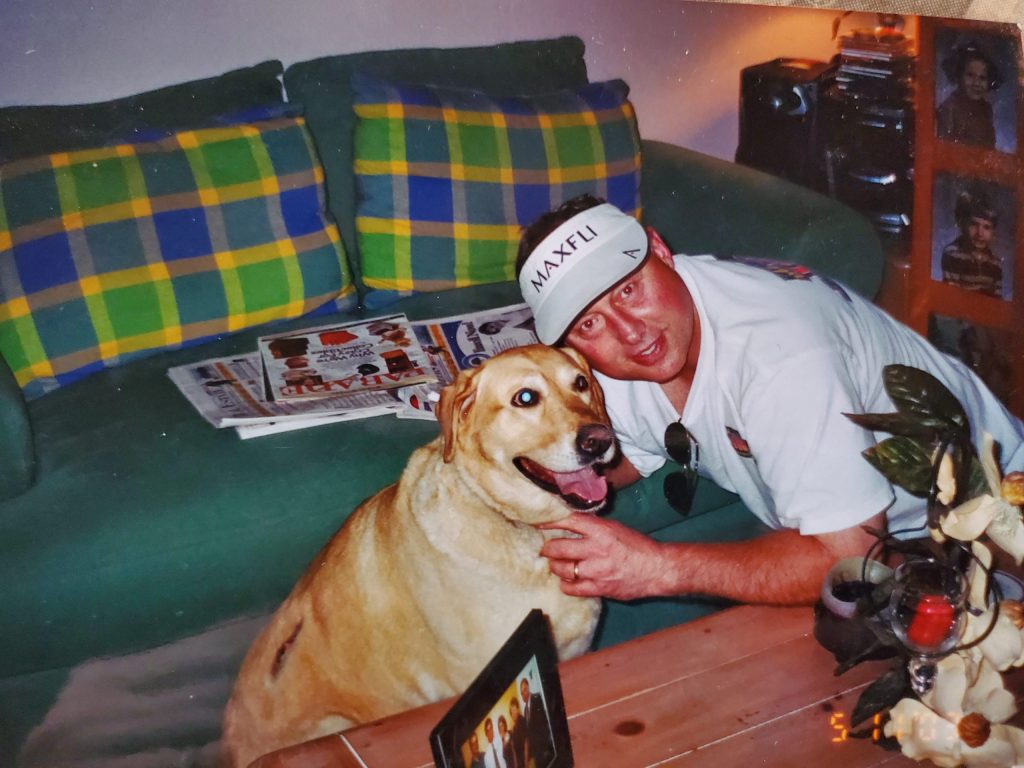
When it came to facets of the game, Fisher’s memory was ironclad, Privette adds. He remembered shots that each man made, or missed, and loved to recount stories of previous adventures. He loved to laugh and make others laugh, Johnson says – even at himself.
“I remember he won a trip one time to play at Pebble Beach, in California, and we all went with our wives,” he says. “Well, we got to go back without them, and on that trip, it was kind of cold out there. His shoes got soaked, and he put them next to the fireplace to dry them out, and they caught fire. We never let him live that down.”
And anybody who was in Fisher’s orbit, they add, learned a thing or two about kindness by the way he modeled it. From local celebrities to residents of the working-class neighborhoods around the Broadway store, he went out of his way to help whoever needed it, says Ed Poore.
“I’ve seen him help a lot of people, and not just people with their tires. I’ve seen him help homeless people get something to eat, just because he liked to help people, and he was really good at it,” Poore recalls. “People would come into his store with a problem, and when they left, everything was fine, just because Bob had that calming effect. It didn’t make a difference what you needed; it was important to him to try and help you.”
Case in point: One Saturday afternoon, Poore set out for Hendersonville, North Carolina, for his son’s wedding. It was a hot day, and the backseat was loaded down with the wedding cake and reception hors d’oeuvres. He hadn’t even left the city limits when a tire went flat, and he immediately limped to Fisher.
“I jumped out and said, ‘Bob, my son’s getting married in four hours in Hendersonville, and I’ve got a flat, but you can’t turn the car off because everything in the back will get ruined by the heat,’” Poore says. “He just said, ‘We’ll fix it,’ and I was on my way.
I remember my dad called me one day, and he broke down somewhere in Sevier County. I didn’t know what to do, but I knew Bob would, so I called him, and of course he took care of it. I don’t know if he went out and fixed it himself or sent somebody, but that’s just the kind of person he was.”
“You can see a lot in a person’s character even at a young age, and Bobby had character,” Morris adds. “He was a little bigger than most kids his age through those years, and obviously had exceptional physical skills, but he was never a bully and never talked harshly to anyone. He was always steady, a quiet sort of person until he was engaged to talk. He might have been a bit shy but was at home with his friends, and he was always supportive. He had your back.”
More than anything else, Smith says, Fisher was down to earth. Not every Fisher customer could afford top-of-the-line tires, and Fisher didn’t try to convince them otherwise. He would, however, go above and beyond to find them a quality tire that met their needs.
“There were plenty of times I’d be down talking to him, and I’d listen and watch him in conversation, and he was genuine in trying to help them,” Smith says. “If he’d gone on to play professional baseball, I’m sure he would have had a lot of admirers and a lot of kids who looked up to him, but at Fisher Tire, you would see people who probably didn’t have enough money to put a meal together, but Bob would help them out and find them something reasonable based on what they could afford.
“He always put others first. He wasn’t real flashy; he didn’t wear the fanciest clothes, and we would always get on to him about the shape of his golf shoes, but he was never turned on by wearing the best or the newest.”
And those traits made him every bit the hero as he was on the baseball field. Mike Armstrong, who owns Lost & Found Records with his wife, Maria, first saw Fisher as a kid, when his father took him to watch area high school baseball games.
Imagine his surprise, then, when he pulled into Fisher Tire to get wheels for his first automobile and the standout pitcher he used to admire from the stands turned out to be the guy selling them to him.
“Every time I would go there, he would always talk with me about his days of playing baseball and other athletes that we both knew of in our area,” Armstrong says.
The two became friends, then golfing buddies, then business neighbors when the Armstrongs first opened a record store in the same strip mall as Fisher. After a 2011 flood damaged the store, however, they thought about moving. Bob and his own wife, Linda, wouldn’t hear of it.
“They owned an old dilapidated house next door to their business that was scheduled for demolition to accommodate more parking,” Armstrong says. “The house looked like a good place for our business if it wasn’t too far gone, and we approached them with the idea of moving there. They were totally on board right from the start. The only problem was we had no money to make the repairs needed.
“These wonderful people took it upon themselves to pay for a complete renovation of the house so we could relocate our shop. They truly were a godsend to us, and we will never forget their kindness.”
And while Fisher’s kindness and generosity were legendary, they were the stuff of whispers among friends and neighbors. Bob never sought out fame or glory, and that humility contributed to the ways in which he was regarded, and still is, as an “icon of North Knoxville,” as Armstrong describes him. Those are traits that live on in his three children – Bobby Jr., Bradley and Noelle Fisher-Warwick – who blessed their parents with three grandsons. Together, they’re maintaining the business’s reputation, but more importantly its character, Bobby Jr. says.
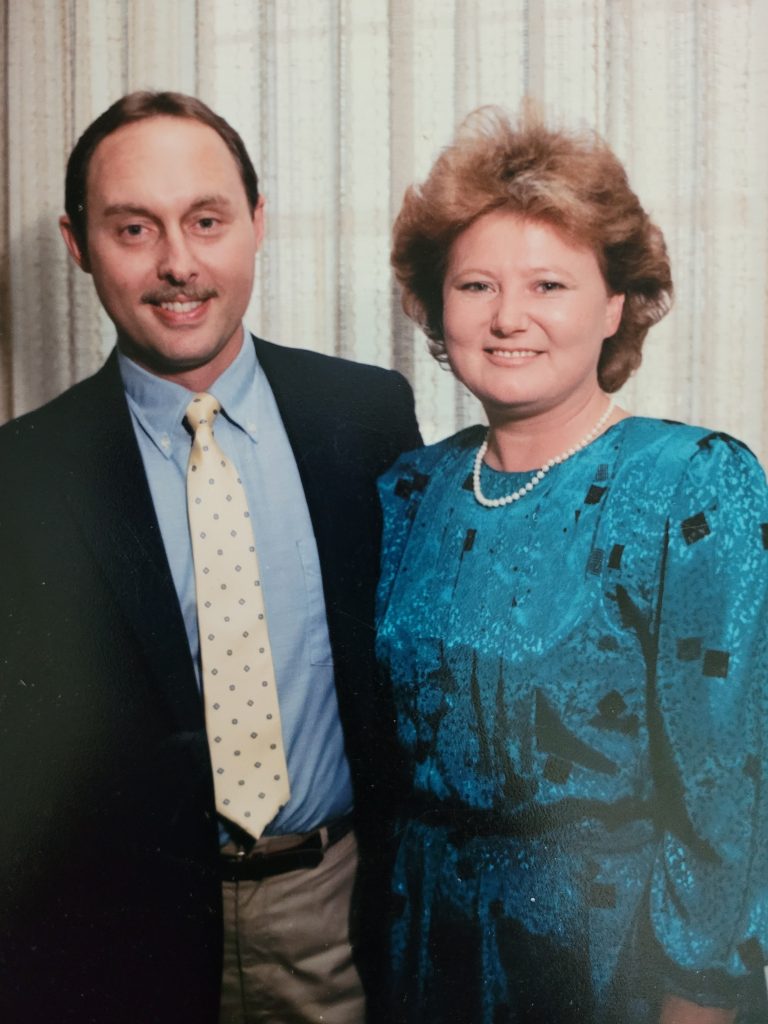
“He left his mark all over this place, from the warehouse to the office to the bays,” he says. “After he was gone, I would see stuff he ordered, or tires he ordered, and it would make me think of him. The way he operated the shop and treated his employees was just like he did everything else. Everybody loved him, and when he took over where my grandpa left off, he’s the reason three generations of families still come here for their tires.
“Today, we just try to make sure people don’t have to spend everything they have on tires. We try to figure out what their budget is and give them an honest opinion while we make sure they’re getting the tires they want for the budget they have, because that’s the way dad did it.”
And while Fisher’s friends may have taken their cars to the business out of loyalty to their friend, they kept coming back because of the service. At Fisher, you became part of a family, and family watches out for one another. Poore convinced his brothers, who don’t even live in Knoxville, to patronize Fisher Tire, and Privette remembers a time when his daughter was in Connecticut for an internship while enrolled at the University of Tennessee, and a pothole shredded a tire that Privette had purchased at Fisher.
“Every place up there wanted to sell her a new set because they said they couldn’t match it, but I talked to Bob, and he knew exactly what she had based on her sales record,” Privette says. “So he got in touch with his rep through Michelin, and he found her the tire she needed all the way up there in Connecticut.”
They knew something was wrong, though, when he slowly began to pull away. Five years ago, Fisher was diagnosed with breast cancer, and after surgery and treatment, it was officially in remission. When it returned, Fisher didn’t want to worry his friends.
“After he got it in remission before, he started working again, and everything was pretty much normal until last summer,” Bobby Jr. says. “He started having issues, and we thought his hip was going out. We didn’t know it was the cancer that had returned, only this time it had metastasized into bone cancer.”
Fisher and his wife of 51 years, Linda, stepped away from the business to fight that battle in the summer of 2023. It was a grueling six months, and the end was rough, his son says. That he retreated from public view was meant to spare his pals, who struggled to find ways to support the guy who had always been there for them.
“It was difficult, and it was kind of strange, because he was really private about it,” Johnson says. “We would try to get in touch with him, but the chemo would do him in, and he wouldn’t want to talk to anybody. We knew nothing, really, until Linda called and told us he died.”
“He didn’t want anybody to see him, to see how much weight he’d lost, and Linda even held off on calling us until after Christmas, because she said she didn’t want to ruin our holidays,” Privette adds.
His friends had suspected this battle might be one the mighty Bobby Fisher wouldn’t win, but his resulting passing was still a bitter mouthful of ashes, the taste of which still lingers all these months later. Some of them, like Poore, haven’t returned to Fisher yet, and how they’ll feel when they pull in is something they’re still figuring out.
“It’s hard to figure out what that will be like,” he says. “I can tell you this much: We knew what was coming, but it hurt. That one really hurt, because he was genuine. If you met him, you loved him, because that’s the kind of person he was, and losing him really hurt.”
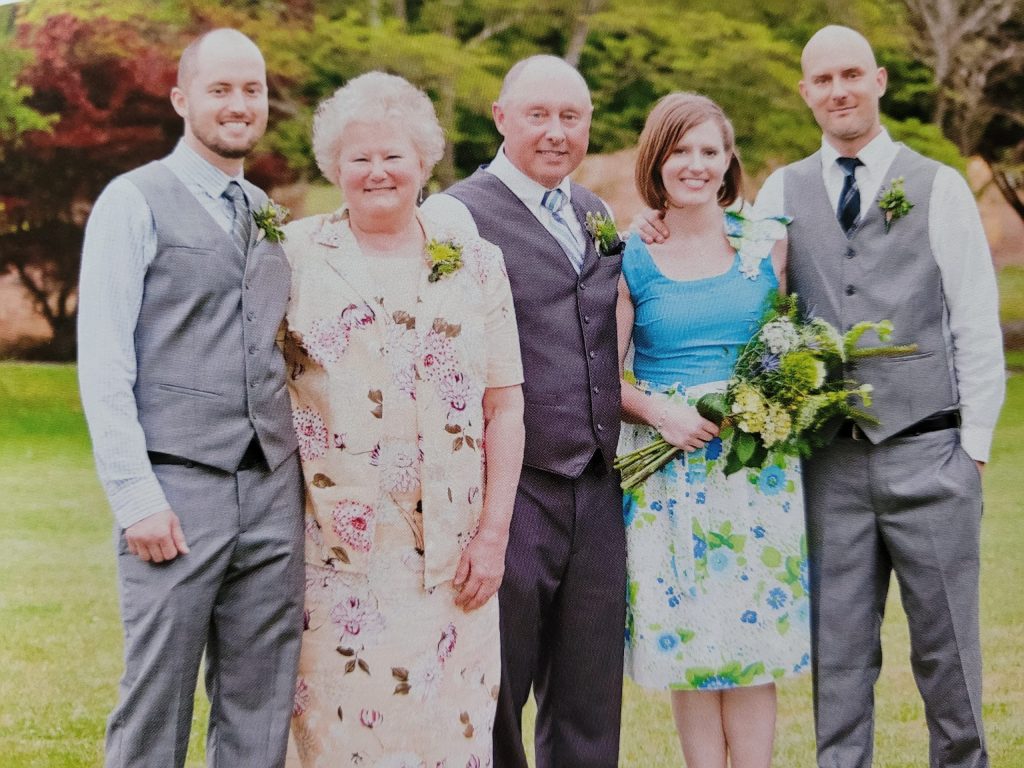
That sting extends beyond the men who knew him best. Rusty Odom, BLANK’s publisher, knew Fisher as a solid supporter of local rock ‘n’ rollers, and discovering his baseball prowess made him even more awestruck by the kind of man Fisher was.
“I didn’t even know he was a great baseball player until R.B. Morris mentioned it to me after his passing,” Odom says. “Not only was Bobby generous and thoughtful AND talented, he went about it the right way. He and Linda have helped an unmeasurable number of people over the years, and they never asked for credit for it.
“On top of all that, the Fishers are just mad cool in surprising ways. They’re huge supporters of the entertainment scene. Whether it was opening the shop for a double-booked Lucero show a couple decades ago or allowing Lost & Found Records to use their parking lot for Record Store Day or a random Superdrag practice, they just always seem to do the right thing.”
With that legacy, his son says, how could the family not carry on? Fisher Tire is a family business that existed before Bob, and the years of toil and sweat he put into it were meant to make sure it would remain so after his departure. There was never talk about closing up shop, Bobby says, because his father set standards of customer service and basic human decency that make for a successful business plan that endures.
“He was just genuine, he loved people, and he loved helping people,” Bobby says. “I’ve seen it a lot: If somebody was in a bind, he’d give someone a free used tire, especially if he could tell people were in a bad way. He just loved helping people out, and whether they were driving a Porsche or a Pinto, he treated everybody the same.”
And that’s what keeps his friends going. Too little time has passed to completely accept the finality of Bob Fisher’s death, and for a guy like Privette, pulling up to the shop and not seeing his old pal walk up with that omnipresent grin … it’s just too much. Fisher Tire was where he belonged, Privette says, and it’s where he’ll remain, at least in the hearts of those who so dearly loved him.
“I still see him there. Right now, he’s over there at Fisher Tire, and I don’t picture it any other way,” Privette says. “If I go down there, I can just pretend like it’s on a day he’s gone on a golf trip with someone, and that eventually, he’ll come up and start laughing and making jokes about playing golf. The first time I did go back, it was surreal, and the only good thing was that there were other Fisher faces I saw that still felt like family.
“Coming out of our generation, Bob and I were fortunate. We had wonderful home lives, wonderful parents, and we went to great schools where the teachers were interested in you and wanted to be positive influences in your lives. Those are all great memories, and I cherish them and hold them dear, because Bob is at the center of them all. If you asked him for anything, he would do his best to make it happen.
“Friends like that … people like that … they don’t come along very often,” he says, his voice again dropping to a whisper as his grief wells up once more. “He was unique.”
wildsmith@blanknews.com



